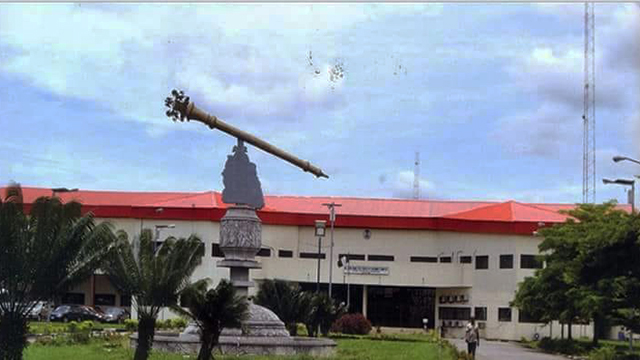• Unsold inventory rises to N1.04tr as sector’s value falls to $25.36b
• Manufacturers lament high exchange rate, galloping inflation
The struggles of the manufacturing sector have considerably worsened in the first half of this year as the industry shed 18,935 jobs, up from 10,891 in the same period in 2024.
This is according to data sourced from the Manufacturers Association of Nigeria (MAN), in its Manufacturing State of Affairs, released yesterday.
Unsold inventory, the report noted, increased to N1.04 trillion in H1 2025, up from N896.2 billion in H2 2024. Meanwhile, average lending rates of 36.6 per cent and a reduction in credit access to N7.72 trillion severely limited the sector’s performance during the period under review.
Similarly, Manufacturing Value Added (MVA) fell to $25.36 billion from $55.9 billion in 2023, as manufacturers lamented that the competitiveness of local manufacturers had significantly weakened under soaring exchange rates, high interest rates, and galloping inflation.
However, capacity utilisation slightly rose to 61.3 per cent from 57.6 per cent in H2 2024, just as manufactured exports also rose to N803.8 billion in Q2 2025 from N294.4 billion in Q1 2025.
Speaking on the report, MAN’s Director, Research and Economic Policy Division, Oluwasegun Osidipe, noted that MAN CEO’s Confidence Index (MCCI) recorded a 0.4-point uptick to 50.7 in Q2 2025, while real output growth dropped from 1.69 per cent to 1.6 per cent in Q2, contributing a modest 7.81 per cent to the country’s GDP.
Lamenting the high cost of alternative energy, which he said was crippling the sector, he noted that the alternative energy cost of N676.6 billion and the raw material import bill of N1.72 trillion in H1 2025 were a significant burden on their operational costs.
The director attributed the declining state of the sector to the hostile macroeconomic environment, extremely high-cost operating environment characterised by huge FX losses, rising costs of raw materials, high energy prices, escalating costs of borrowing, multiple taxation, dilapidated infrastructure, a high level of insecurity, and excessive regulation by government agencies.
Breaking it down, he said nine industrial zones (Imo/Abia; Ikeja; Kaduna; Kwara/Kogi; Rivers/Bayelsa; Anambra/Enugu; Kano; Abuja and Bauchi/Benue/Plateau) recorded improved confidence scores due to easing inflation, steadier naira and moderate improvement in FX access, while five (Apapa; Edo/Delta; Ogun; Oyo/Ondo/Ekiti/Osun and Cross River/Akwa Ibom) recorded diminished confidence due to logistics and port frictions as well as electricity transmission and distribution interruptions, which raised operating costs and delayed production.
Six zones (Anambra/Enugu; Oyo/Ondo/Ekiti/Osun; Kano; Abuja; Cross
River/Akwa Ibom and Bauchi/Benue/Plateau) recorded indices below the 50-point threshold due to localised power outages, supply chain bottlenecks, insecurity, flooding and cost pressures.
On the top 10 challenges facing manufacturers, he listed power supply, exchange rate/FX scarcity, low patronage, high electricity tariffs and the cost of alternative energy, high costs and shortages of raw materials, high interest rates, and poor access to credit. Others include poor road infrastructure, high costs of logistics, multiple taxation, government over-regulation, policy inconsistency, and heavy import duties and port problems.
MAN’s Director-General, Segun Ajayi-Kadir, noted that the modest rise in the MCCI since Q2 2025 “reaffirms that the economy is gradually recovering”. To sustain it, he said, exchange rate stability must be guarded with every available policy tool.
“One of the biggest threats to stabilisation is a decline in oil production, as witnessed in August and September. While global oil prices remain entirely outside Nigeria’s control, the country retains considerable influence over its production levels, a domestic variable that must be managed with urgency and precision. The Federal Government must reach the Organisation of the Petroleum Exporting Countries (OPEC) quota by tightening pipeline security and upgrading operational infrastructure, and sustain the increase in refining capacity by forestalling any further industrial dispute in the mainstay of the economy.”
Urging the government to adopt fiscal discipline, he said that progressive tax reforms could only deliver their promise of higher revenue, improved living standards, and a more enabling business environment when enforcement is disciplined and predictable.
“Ultimately, manufacturing remains the heartbeat of sustainable recovery and the catalyst for inclusive growth. No economy has ever prospered on consumption alone. Nations rise by producing what they consume and exporting what they produce. To secure the gains of stabilisation and accelerate prosperity, Nigeria must make manufacturing the nucleus of its growth strategy,” he added.






